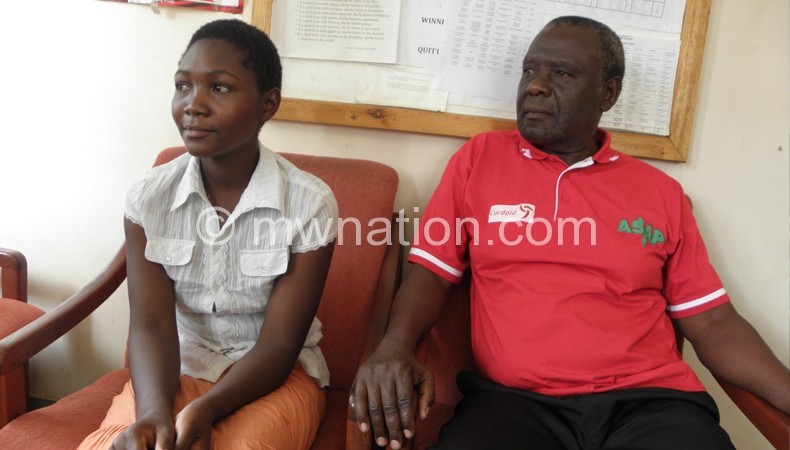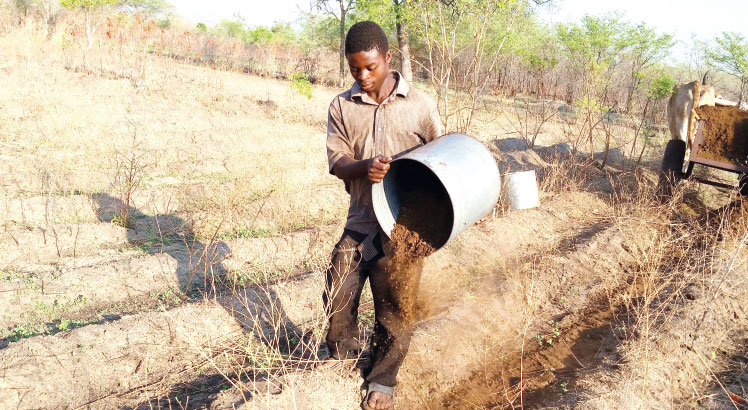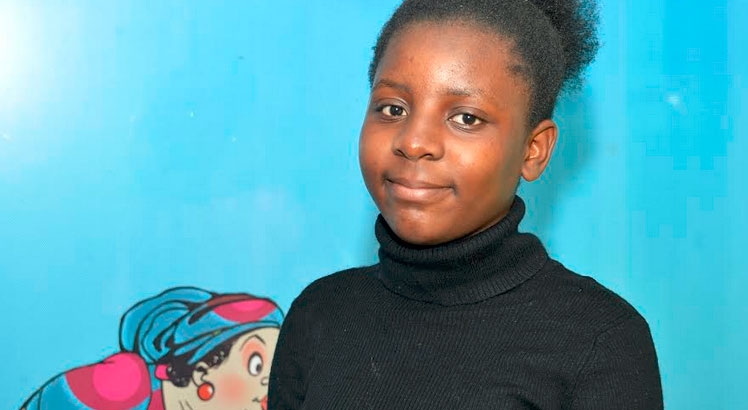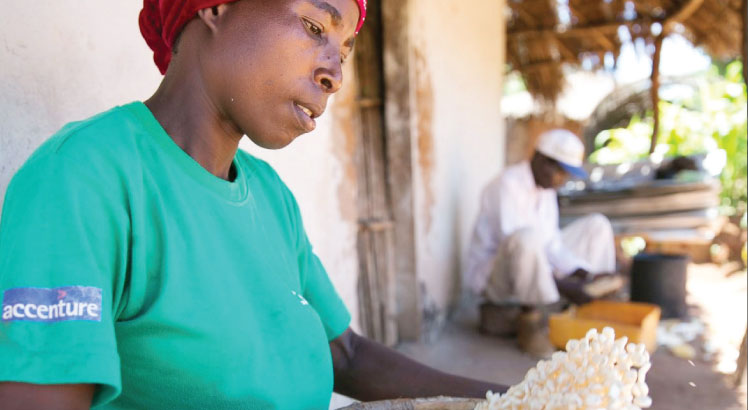Saved from the jaws of teen marriage
Every child, irrespective of status in society, has a vision. They dream big and always in colour.
Similarly, 18-year-old Regina Mustafa of Makina Village in the area of Traditional Authority (T/A) Lundu in Blantyre also had her infant dreams. She confesses they were always glittering to envisage.

“In my village, there is a huge dam with water throughout the year, but I have grown observing people not utilising it. I want to get educated and acquire appropriate skills so that I train them in how to make use of that water continually through irrigation farming,” says Regina.
Although, as children grow up, dreams largely end up being dreams, some supportively live up to them.
However, Regina’s dream nearly crumbled two years ago when she abandoned school to get married. She was 16 then, and had just written her Standard Eight final examinations at Lirangwe Primary School when she decided to marry her 18-year-old lover.
A wedding day, just like other specific moments, is one thing a person does not want to forget. But for Regina, the day she would have walked onto marriage life torments her.
Three days before their engagement ceremony, she was among thousands of primary school pupils selected to enroll at Namikasi Secondary School in Blantyre.
However, despite some resistance from some of her family members who appreciated that their daughter was still a minor, the engagement went ahead on September 8 2012.
As the ceremony progressed that Sunday afternoon, two child rights activists from the area, Harold Ndau and Dickson Dzinkambani Nkhoma, got the news that a minor was wedding and immediately rushed to the venue.
Ndau and Nkhoma, using their skills learnt through the Quality Improvement Standards (QIS) initiative, managed to stop the wedding.
QIS is an initiative being used in the area of T/A Lundu by Save the Children through the Capacity Support for Early Childhood Development and Psychosocial Support (C-SEP) project to ensure that children grow and develop holistically in meeting their psycho-socio needs.
“Our inquiry revealed that the bride-to-be was only 16 years so we planned to advise the organising committee to stop the marriage. However, we did not want to create chaos in the midst of celebrations, so we told them that immediately after the event, the girl must go back to her parents’ house because she was still a minor,” explains Ndau, executive director of Tikondane Community Based Organisation (CBO).
Ndau and Nkhoma, Area Development Committee (ADC) chairperson for T/A Lundu, engaged the two families before reaching an agreement that the girl must go back to her parents.
So the following morning, September 9,
the girl was on the road heading for Namikasi Secondary School to start Form One.
Sitting agitatedly in her head teacher’s office, Regina appears exceedingly uncomfortable to jog
her memory about the September 8 2012
episode. She titters, lays her finger over her mouth and takes a shallow sigh as she grants The Nation an interview.
“Regina, be as open as you can. You don’t have to fear anything. You are now a role model and you will have to get used to this [interview],” Mercy Kalua, Blantyre coordinator for early childhood development (ECD) for Save the Children sets the ball rolling.
“I really don’t know what transpired for me to return to school,” Regina opens her mouth. “When I remember it, I hate myself, I sob, actually I don’t want to be reminded any bit of it.”
Regina says she was so excited at hearing about her selection to secondary school, yet she decided to go for marriage.
“That is every child’s dream [to get selected] but somewhat I was scared that if indeed I dumped my prospective husband, his relatives would be angry with me and do anything to destroy my life since they wasted a lot of money preparing for our engagement ceremony,” she explains.
Now in Form Two at the secondary school in Blantyre Rural, Regina’s vision is to become an agricultural scientist.
She says: “My relatives are poor and I don’t want the generations to come, including my siblings, to continue being poor when they have a precious resource [dam] within reach.”
The school’s head teacher, Wyson Phiri, says Regina is one of the hard-working and promising students at the model learning institution.
He says upon arrival at the school campus, Regina looked psychologically affected because of what she had gone through in preparation for her marriage.
“When the girl just arrived, she was like a mentally disturbed person because she refused to do anything, lived in isolation and at times also refused to go to class. But after we found out from her family what had happened to her, we engaged our counselling committee who supported her. Since then, there has been no problem,” narrates Phiri.
In her village, Regina says she has seen scores of her peers dropping out of school and getting married. But she says she is happy that Nkhoma and Ndau rescued her because her future now looks bright..
“I just want to encourage those girls who were forced into marriage because they fell pregnant to return to school after delivery. It is not too late. I am now able to see things differently because of school,” she says.
During her senior primary classes, Regina was a star performer at Lirangwe Primary School.
“She was mostly among the top three in a class dominated by boys. She maintained that and it was not surprising when she got selected to secondary school,” said one of her former primary school teachers.
For Regina, one thing is in her mind now: “Until such a time when my villagers understand how valuable that idle water in the dam is, and start utilising it throughout the year, my dream stays.”






This is a beautiful story, and I wish more stories like these would be published often to encourage other girls.